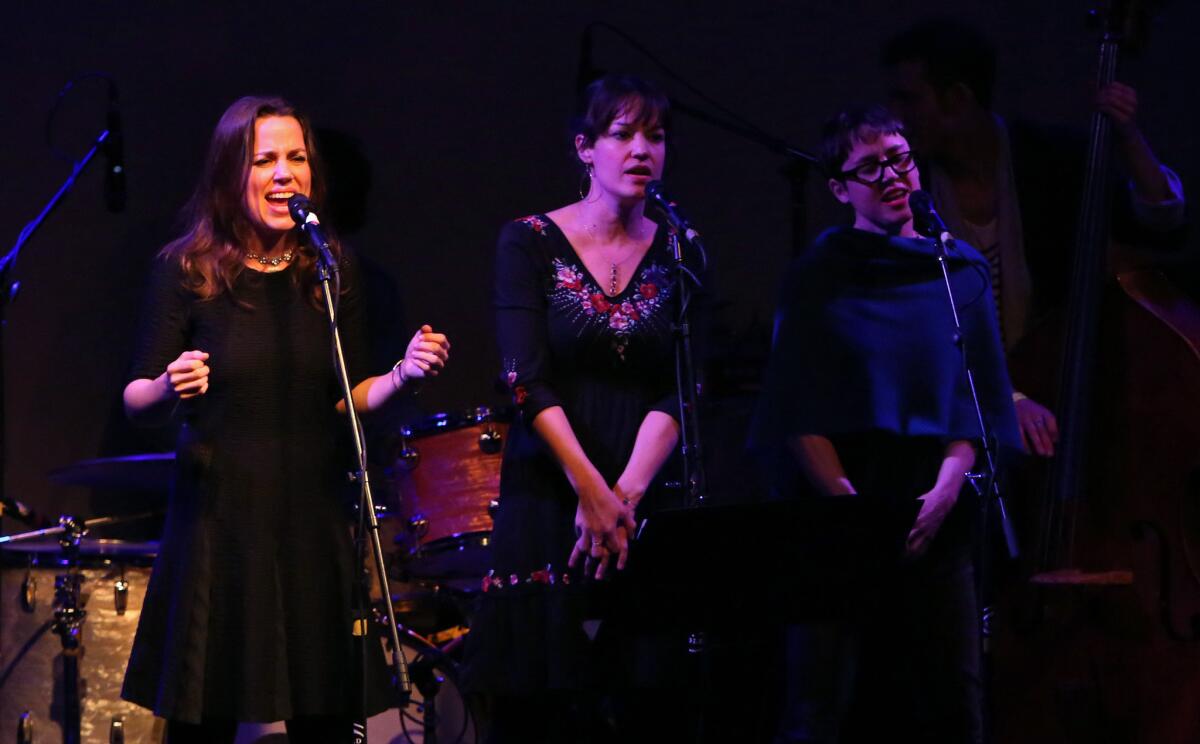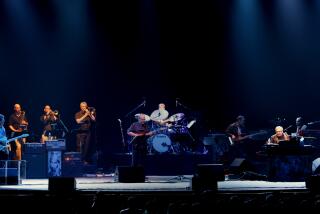Charlie Haden dies: The bassist’s daughters remember his influence

In February I sat down with the Haden Triplets in a dressing room at Warner Bros. Studios in Burbank. The L.A.-based sisters -- Rachel, Tanya and Petra, daughters of the celebrated jazz bassist Charlie Haden, who died Friday -- were there to perform a song on Conan O’Brien’s late-night show; I’d joined them before the taping to discuss their self-titled debut album.
Produced by Ry Cooder, “The Haden Triplets” is a beautifully stark collection of old-timey roots music: songs like the Louvin Brothers’ “When I Stop Dreaming,” Bill Monroe’s “Memories of Mother and Dad” and “Single Girl, Married Girl,” the Carter Family standard the women previously sang together on their father’s 2008 album, “Rambling Boy.”
If you played it for someone who didn’t know anything about country music, he or she would finish the record with some solid ideas about the form. In our talk, though, Tanya – who occasionally played with her sisters in their mid-’90s pop group That Dog -- was quick to avoid claiming any kind of down-home credentials.
“We’re not a country band,” she said, adding that “some of us like Daft Punk.” She went on to point out that she sometimes works with Silversun Pickups, the Eastside indie-rock act, and that Petra has a solo project in which she’s recorded a cappella renditions of well-known movie themes and “The Who Sell Out.”
“But I guess we’ve always had these roots because of our dad,” Tanya said, “because those were his roots.”
Before he became a fixture on the jazz scene, known for his collaborations with Don Cherry and Ornette Coleman, Charlie was a member of a much earlier band of Hadens, performing country songs as a child with his family around the Midwest and on the radio.
“When you’re a kid, you rebel,” Tanya said, referring to her and her sisters’ move away from that music as teenagers.
But singing in three-part harmony always felt natural for the women, even when they weren’t doing anything resembling Americana. Charlie was “always explaining harmonies to us,” said Petra, who added that when her father sang he sounded “just like his mom.”
“This is in our blood,” Rachel said. “I think it was inevitable that eventually we’d do this.”
Twitter: @mikaelwood
More to Read
The biggest entertainment stories
Get our big stories about Hollywood, film, television, music, arts, culture and more right in your inbox as soon as they publish.
You may occasionally receive promotional content from the Los Angeles Times.







